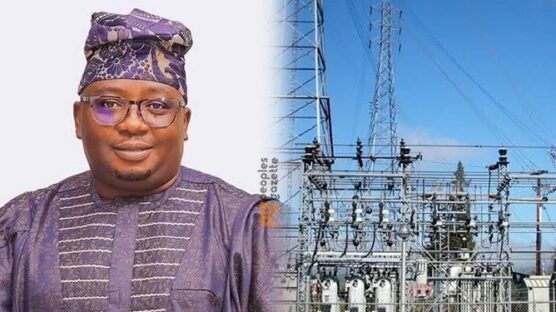
Following a 100-day power outage that has severely impacted numerous residents and businesses, the Ibadan Electricity Distribution Company (IBEDC) and the University College Hospital (UCH) have reached an agreement to restore electricity supply.
This resolution follows protests by students of the University of Ibadan College of Medicine on Monday, who took to the streets of UCH to demonstrate against the prolonged power outage that has plagued the institution for over 100 days.
The protesting students, visibly frustrated by the blackout, displayed placards with messages such as “We are tired of 100 days of darkness” and “Save UCH,” calling on the government and relevant authorities to resolve the issue, which has disrupted both their academic and clinical activities.
The protest coincided with a visit by the Minister of Power, Chief Bayo Adelabu, and the management team of IBEDC, who were at UCH to discuss the ongoing power outage.
Student Union President, Bolaji Aweda, addressed the gathering, emphasising the union’s demand for the immediate restoration of power to the hospital. “We are tired of this prolonged blackout. It is negatively affecting our studies and the clinical procedures that are essential to our training,” Aweda said.
The students also voiced concerns over the 50 per cent healthcare facility waiver promised by the government, which they claimed had yet to be fully implemented. They also called for urgent reforms in the health sector to improve facilities and address ongoing issues like power outages.
In his response, Minister Adelabu acknowledged the students’ frustrations and assured them that the government, alongside UCH management, would thoroughly investigate the root causes of the power cut. He pledged that a permanent solution would be found and that the hospital would soon be reconnected to the national grid by IBEDC.
The situation at UCH escalated after the hospital was disconnected from the national grid on October 27, 2024, due to an outstanding debt owed to IBEDC. Since then, the hospital has been operating without electricity, further complicating the challenges faced by students and healthcare workers.
Minister of Power, Chief Adebayo Adelabu, confirmed that IBEDC would reconnect UCH as soon as the agreed conditions were met. He disclosed this following a tripartite meeting involving himself, the management of UCH, and IBEDC at the hospital complex.
Adelabu explained that the reconnection would take place after the College of Medicine and other commercial entities, such as banks and businesses, were disconnected from the hospital’s power supply. He stated that the energy consumption of these entities had contributed to the hospital’s high energy costs.
“There is a gross mismatch between the energy cost to UCH and how much they charge the business entities,” he said. “The business entities within the hospital should also pay for the energy they consume. Anyone wishing to receive direct energy support with UCH must commit in writing to pay before IBEDC can proceed with reconnection.”
Following the energy separation plan, Adelabu said UCH’s electricity bill would be reduced to one-third of its current cost. He added that the hospital had committed to paying its outstanding debt over the next nine months and settling any new electricity bills.
Adelabu also mentioned that UCH would be considered for Phase 2 of the Rural Electrification Agency (REA) Projects, scheduled for the second and third quarters of 2025. He said the long-term goal was for federal government institutions to transition off the national grid, noting that REA projects had already been successfully completed at institutions such as the University of Abuja and the University of Maiduguri.
IBEDC Managing Director, Mr Francis Agoha, assured that the company and the hospital’s management had agreed on ways to ensure better energy management at UCH. He confirmed that the hospital would be reconnected once the agreed conditions were met.
“We will reconnect as committed, but certain actions must be taken; some entities consuming electricity with the hospital will have to be disconnected before we can proceed with reconnection,” Agoha said. “The management will need to inform us of those willing to pay, so they can be reconnected.”
He also added that a team would be set up to review the hospital’s electricity bills to prevent further escalation of costs.
Earlier, UCH’s Chief Medical Director, Prof. Jesse Otegbayo, explained that the hospital management had been working tirelessly to provide alternative and sustainable electricity power. “We have implemented a phased approach, including the provision of alternative energy sources such as solar inverters and diesel-powered generators in critical units, including wards, the accident and emergency unit, labour wards, and theatres,” Otegbayo said.


